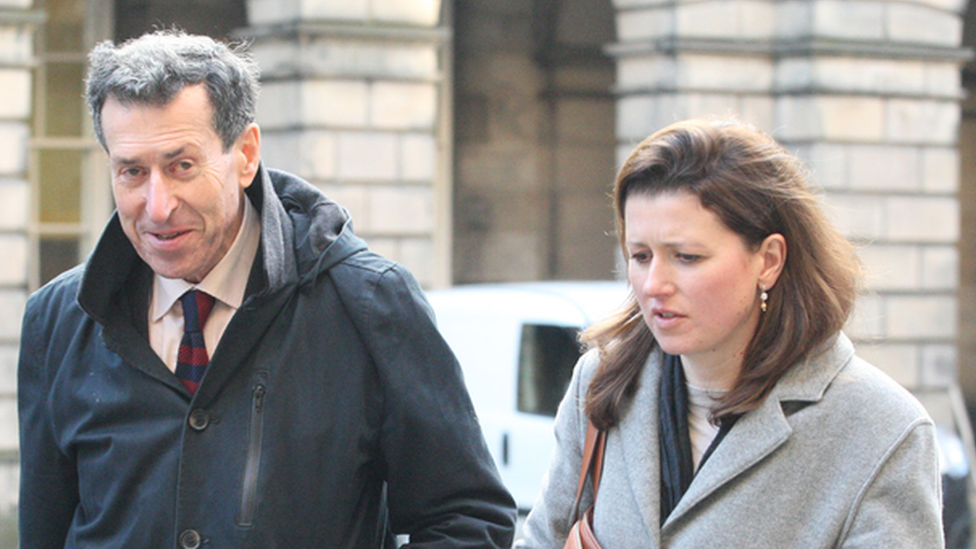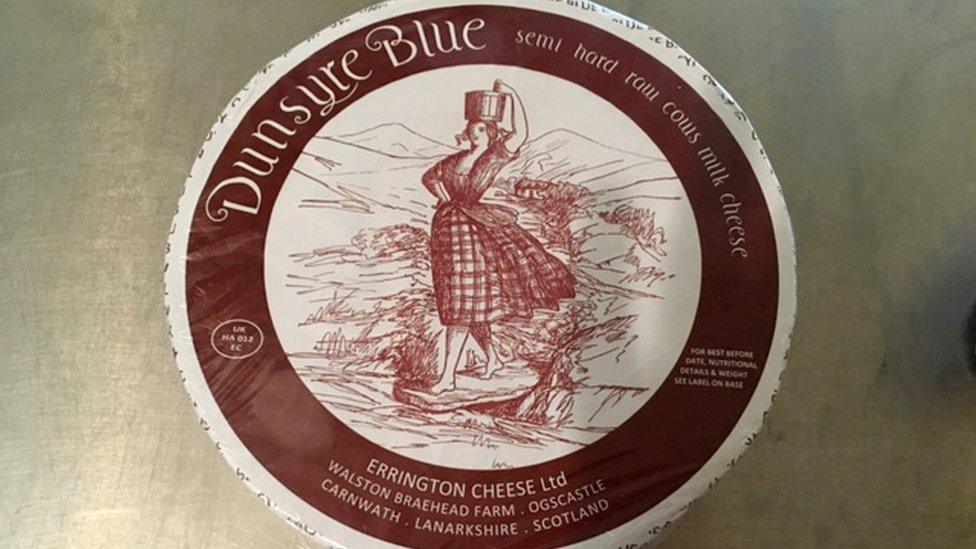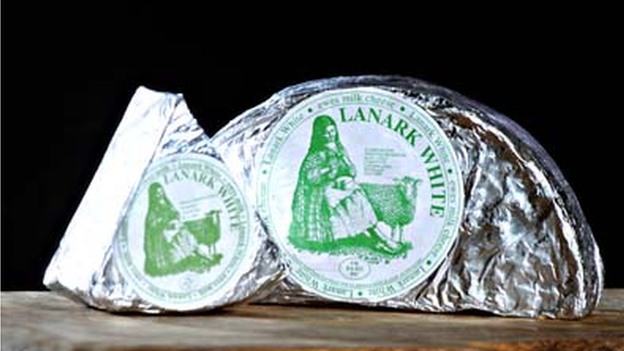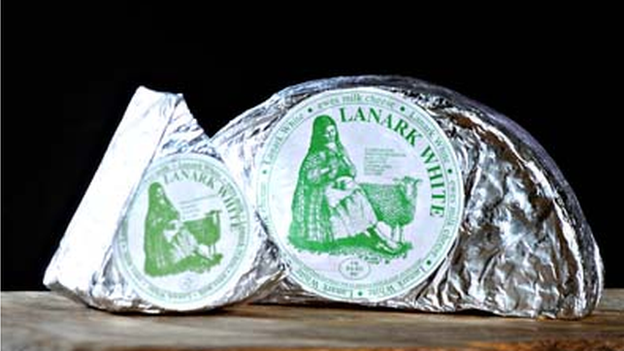Errington Cheese wins latest court fight over sales ban
- Published

Humphrey Errington insists his cheeses are safe
A cheesemaker whose products were linked to a fatal E.coli outbreak has won the latest round in a court battle over a sales ban.
Food Standards Scotland imposed the ban after finding strains of the bacteria in Dunsyre Blue and Lanark Blue.
Producer Errington Cheese has insisted its products are safe.
A judge has now ruled the action taken by South Lanarkshire Council was unlawful and granted an interim measure in favour of owner Humphrey Errington.
Lord Bannatyne said the products must not be marketed for a week to allow the local authority to consider alternative action.
Carnwath-based Errington Cheese was linked to an E.coli outbreak in July in which a three-year-old girl from Dunbartonshire died. A total of 11 people received treatment in hospital.
In September, Food Standards Scotland (FSS) imposed a ban on all cheese produced by the firm.

Health officials investigated possible links to Dunsyre Blue cheese
People were advised not to eat the cheese and to return it to the seller.
After an initial legal challenge to the order was dropped, the watchdog confirmed it had issued a revised order in relation to Errington Cheese products.
It stressed that the full product withdrawal remained in place as the cheeses were "regarded as a risk to health".
Errington Cheese has raised a judicial review against the council over its decision to serve notices on it earlier this month under Food Hygiene (Scotland) Regulations.
At the latest court hearing, lawyers acting for Errington Cheese argued that the measure blocked the firm from challenging the FSS decision in court and potentially securing compensation.
Ronald Clancy QC, for Errington Cheese, told the Court of Session in Edinburgh that the company had operated since 1984 and was "a well-established business in Lanarkshire which made high-quality artisan cheese".
'Highly contentious'
He said they made seven different types from cow and ewe milk, but the present proceedings were concerned with only Lanark Blue and Corra Linn, which are both produced from ewes' milk.
Mr Clancy said the results of FFS tests on the cheese were "highly contentious". The cheesemaker maintained that, properly understood, they did not give rise to concern about the fitness of the cheese for consumption.
"None of the tests which have been done since July last year show any link between Corra Linn and Lanark Blue types of cheese and the E.coli outbreak which occurred last year," he said.
"Nobody is suggesting these two types of cheese were responsible for that outbreak."
Mr Clancy told the court: "E.coli caused by cheese of any kind is a very rare occurrence. Cheese made from ewe's milk has never been blamed."
The FSS issued a notice in November last year asking local authorities to take steps to ensure Errington Cheese products were withdrawn from sale.

All cheese produced by Errington was banned
Mr Clancy said the notice "effectively directed local authorities throughout Scotland to use their powers to prevent the petitioner's products being placed on the market".
He said it was, in practise, an embargo on all their cheese and the value of their stock was estimated at about £350,000.
Mr Clancy said the firm had been taking expert advice and now had the material with which they could legitimately mount a challenge to the FSS claim that their cheese does not comply with food safety requirements.
He said the cheesemaker had decided to take an "incremental approach" to returning its products to the market.
It and had selected Lanark Blue and Corra Linn and written to the local authority informing them of their intention to resume sales of those types.
Lost sales
Mr Clancy said that since the firm's products were taken off the market, the firm has been "paralysed". They had lost sales, cheese had had to be disposed of and there were fears they might lose a skilled workforce.
Ruth Crawford QC, for the council, said they maintained that they had acted lawfully, proportionally and reasonably.
She said the local authority's use of the regulation it acted under was entirely consistent with the guidance issued by the FSS.
A full hearing in the judicial review is to take place next month.
- Published10 November 2016
